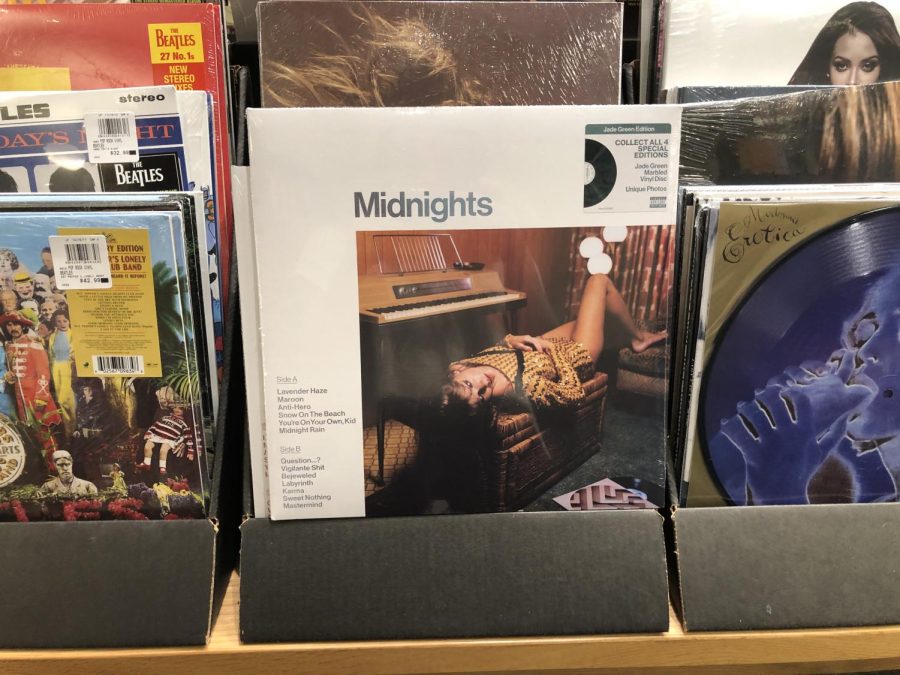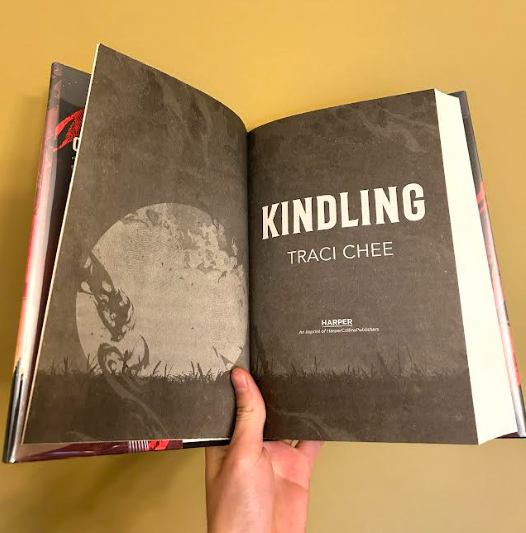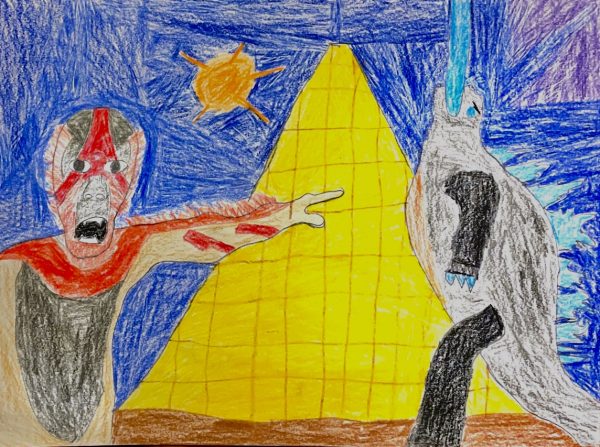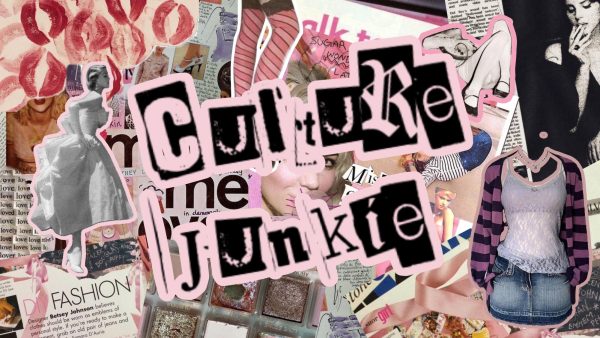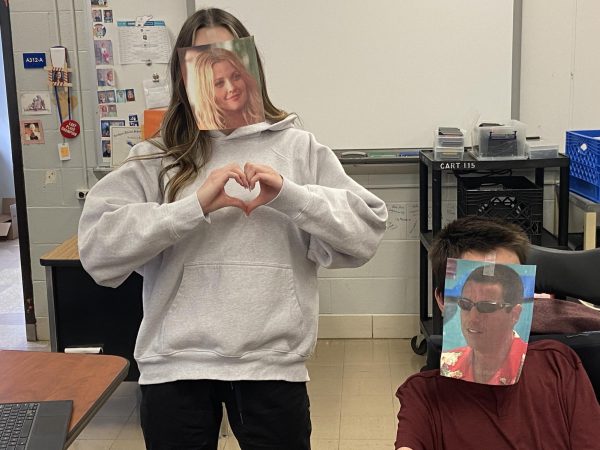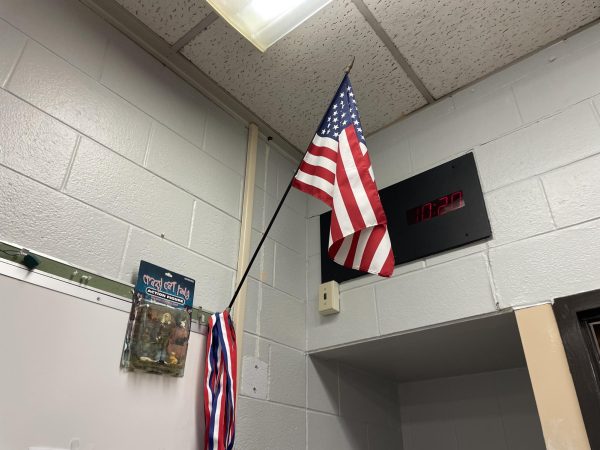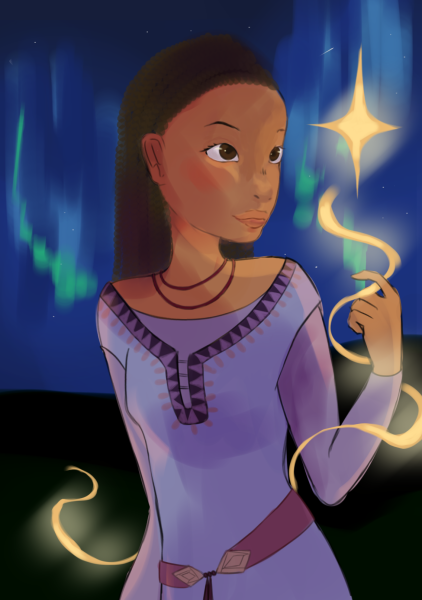Taylor Swift returns to signature style with ‘Midnights’
Fans who started liking Swift during her moody “folklore” and “evermore” eras may not be fans of her return to pop, but fans who have been around for a while can appreciate Swift’s return to her most successful genre.
While Taylor Swift is no stranger to experimenting with her sound, it seems she has returned to her niche with her tenth studio album “Midnights.” Swift dropped “Midnights” on Oct. 21, 2022 featuring 13 tracks, and in classic Swift-style surprise-dropped seven more songs three hours later that same night. Swift described the concept of the album as a look into “13 sleepless nights scattered throughout [her] life.”
Aside from the releases of her re-recorded albums “Fearless (Taylor’s Version)” and “Red (Taylor’s Version), Swift has been leaning into a darker, more indie sound with “Folklore” and “Evermore.” While Swift’s catchy lyrics still focus heavily on storytelling and visual imagery, she has returned to the pop style that she is best known for.
Each Swift album so far has seemed to have a distinct feel within the realm of pop, but with “Midnights” Swift has blended different aspects of her more recent albums, namely the upbeat feel of “1989” and “Lover” with the more mature lyrics of “reputation” and “folklore.”
The first single off of “Midnights” is track three: “Anti-Hero,” which recieved a music video the morning after the album dropped. Swift delves into her internalized fears that she is causing her own miserable mental state. With such a deep meaning to the song, one would think that it would be slow and mournful, but Swift begins the song with an upbeat drum feature that drives the rest of the song, and proposes a juxtaposition to the vulnerability of the lyrics.
“I’ll stare directly at the sun but never in the mirror/ It must be exhausting always rooting for the anti-hero”
When Swift announced the release of “Midnights,” she did not announce the tracklist at the same time, and instead announced each song one by one via Tik Tok, in a segment she called “Midnights Mayhem with Me.” One of the songs that fans were most excited to hear after it was announced was the song “Karma” due to a fan theory of a scrapped Swift album with the same name.
While the actual song did not reveal anything further about this theory, it certainly proved itself to be a highlight from the album. Swift is known to look back on past situations and relationships with regret and sadness, but in “Karma,” Swift sings with a care-free attitude, knowing that she can rely on karma to avenge her. Some fans speculate that this song is about her feuds with either Kanye West or Scooter Braun as Swift sings “Karma’s a relaxing thought/ Aren’t you envious that for you it’s not?”
Swift is known for making the fifth tracks on all of her albums some of the saddest songs on the album, and “You’re On Your Own, Kid” was no exception; Swift blends a tale of growing up, falling into and out of love, struggling with insecurities and leaving your hometown into one heartbreaking song, with a gently beating background that builds into a melodic chorus. Despite the fact that the song is about Swift’s personal experience, there is something in the melancholic song that draws the listener in, and reminds them of their own lives.
“From sprinkler splashes to fireplace ashes/ I gave my blood, sweat, and tears for this/ I hosted parties and starved my body/ Like I’d be saved by a perfect kiss”
Perhaps Swift’s most romantic and hopeful song on the album is “Sweet Nothing.” The simplistic piano lick at the opening of the song reminds the listener of true loves, and the hopefulness for happily ever after. Swift also describes the peace that comes with loving someone who wants “Sweet Nothing” from her, and appreciates the way she is without trying to take something away from her.
No album from Swift is complete without some hidden surprise, and the seven additional tracks that Swift released 3 hours after the initial album was a curveball that fans did not see coming. Swift explained in an Instagram post why she wanted to release these bonus tracks, relating them to the “From the Vault” tracks on her re-recorded albums.
The standout song from these bonus tracks is “Would’ve, Could’ve, Should’ve” with a dark, deep baseline that emotes a suppressed rage at the subject of the songs, and vengeful lyrics that are reminiscent of Swift’s older songs such as “Better than Revenge” and “Should’ve Said No.” The song builds to the bridge as Swift begs the subject of the song to return her to her innocent way of life before their relationship. Swift’s writing chops are on full display in this song as she employs religious metaphors to describe her mourning.
“I damn sure never would’ve danced with the devil/ At nineteen, and the god’s honest truth is that the pain was heaven”
All in all, fans who started liking Swift during her moody “folklore” and “evermore” eras may not be fans of her return to pop, but fans who have been around for a while can appreciate Swift’s return to her most successful genre.


